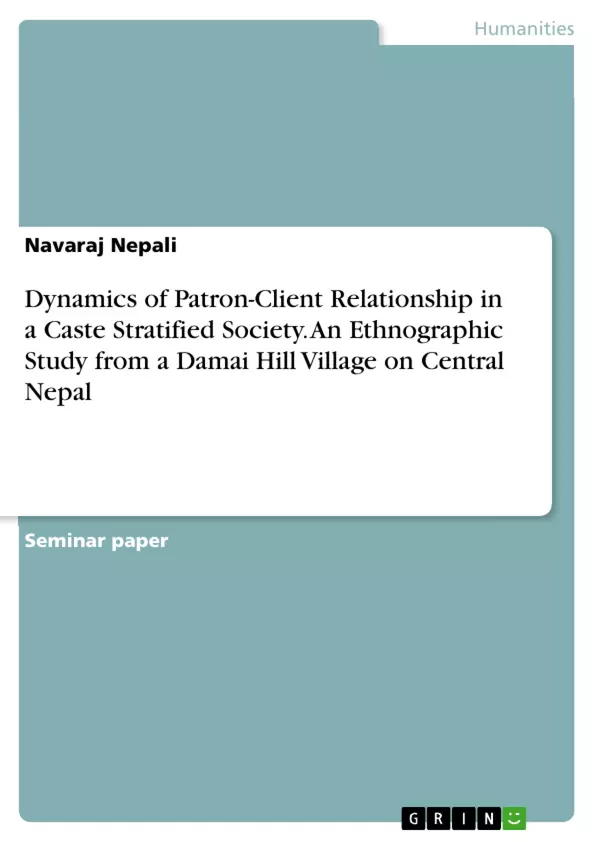This study was designed to record information of Hill Damai emphasizing on their socio-economic and political organization, life cycle rituals, and language and kinship pattern. An attempt also has been made to explore the impact of modernization on their traditional occupations. This paper also highlights the salient traditional occupational features and recommendations of policies for the promotion of traditional occupation for self-reliant. It also deals with the causes of intergenerational occupational mobility and shift from the traditional occupation of hill Damai. The caste engaged in sewing clothing is called Suchikar or Sujikar. Those who play musical instruments like damau (damaha), hudko, and devbaja, particularly, in wedding processions referred to as damai dholi hudke, nagarchi and nagdi. Originally they were called different names according to which instruments they played. Someone employed in sewing is now called darji, tailor, master, or tailor-master. Darji was once used only for tailors, but now it is used for all tailors as well as musicians. Similarly, damai or damahi has also undergone extension of its meaning. Initially it only meant someone who played the damaha.
Table of Contents
- Introduction
- History of Dalit
- The caste system today
- Patron-client relationship in a caste-stratified society
- Conclusion
Objectives and Key Themes
This ethnographic study examines the dynamics of patron-client relationships within a caste-stratified society, focusing on the Damai community in a hill village in central Nepal. The study aims to understand the socio-economic and political organization of the Damai, their life-cycle rituals, language, and kinship patterns. It also investigates the impact of modernization on their traditional occupations and explores the causes of intergenerational occupational mobility.
- The impact of caste hierarchy on the Damai community
- The role of traditional occupations in Damai society
- The influence of the 'Bali Pratha' or 'Bista' system on Damai livelihoods
- The effects of modernization on Damai occupations
- The dynamics of patron-client relationships within the caste system
Chapter Summaries
- Introduction: This chapter provides an overview of Nepal's cultural and ethnic diversity, emphasizing the heterogeneity of the Dalit group and its regional divisions. It introduces the Damai caste as traditional tailors and musicians and outlines their historical categorization as "impure and untouchable" in the 1854 Muluki Ain.
- History of Dalit: This chapter explores the historical context of caste discrimination in Nepal through an analysis of the 1854 Muluki Ain. It highlights the hierarchical structure of caste groups and the legal codification of social codes that were rooted in traditional Hindu practices.
- The caste system today: This chapter delves into the ongoing impact of caste-based discrimination on the Dalit community, focusing on the social, political, and economic challenges they face. It examines the denial of basic rights and the prevalence of untouchability.
- Patron-client relationship in a caste-stratified society: This chapter examines the patron-client relationships that exist within the caste-stratified society of Nepal. It focuses on the role of the 'Bali Pratha' or 'Bista' system in shaping Damai livelihoods and the dynamics of gift exchange within this system.
Keywords
This study delves into the intricate relationship between caste stratification, patron-client dynamics, and the socio-economic realities of the Damai community in Nepal. It explores themes such as traditional occupations, cultural practices, modernization, and the impact of historical categorization on their lives. Key concepts include 'Bali Pratha', 'Bista' system, untouchability, caste-based discrimination, and the role of music and tailoring in Damai identity.
- Citation du texte
- Navaraj Nepali (Auteur), 2018, Dynamics of Patron-Client Relationship in a Caste Stratified Society. An Ethnographic Study from a Damai Hill Village on Central Nepal, Munich, GRIN Verlag, https://www.grin.com/document/445048



